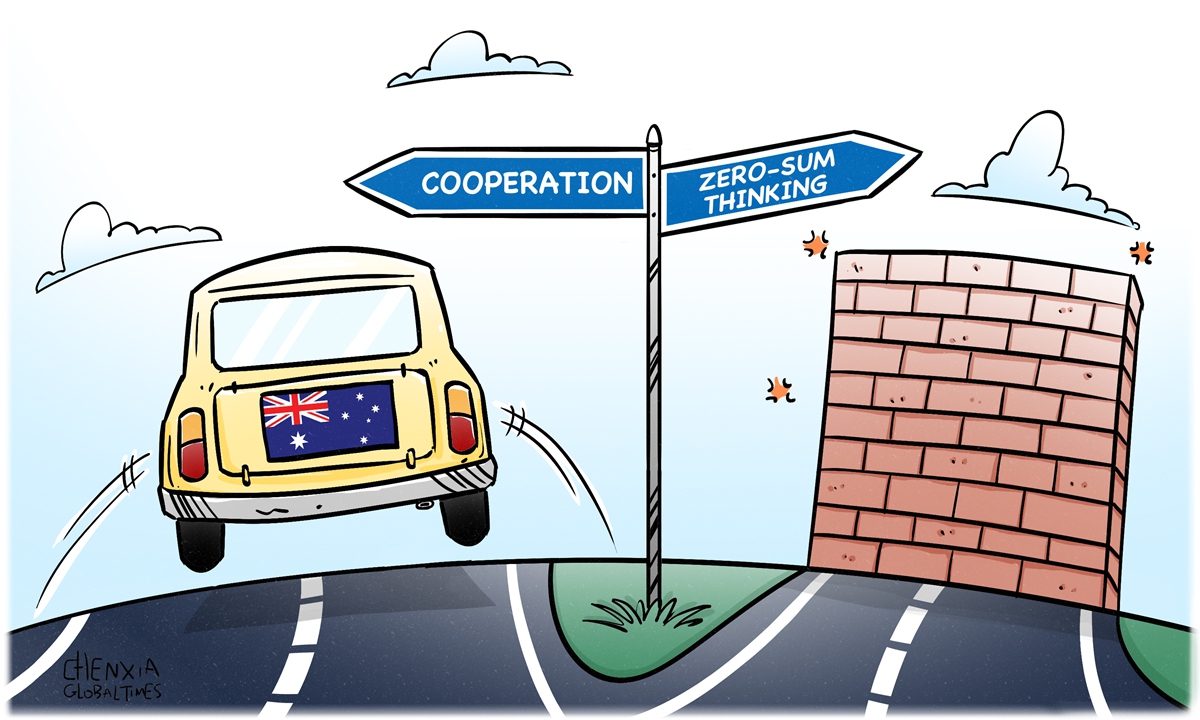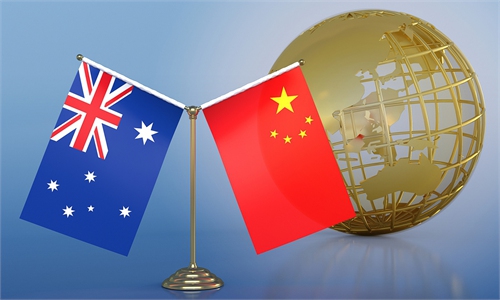
Illustration: Chen Xia/Global Times
While there is no doubt that Australian Prime Minister Anthony Albanese's visit to China is a symbolic event for China-Australia economic and trade exchanges, and a time to say goodbye to troublesome uncertainties and start a new chapter, the fact that there is still anti-China noise serves as an important reminder that improving mutual trust will require more efforts and an adherence to pragmatic cooperation.In a video interview aired by skynews.com.au on Monday, Australian Strategic Policy Institute senior analyst Malcolm Davis told Sky News Australia that China will do whatever is "in its best interest," claiming that Australia will be "exploited by China" wherever possible.
At a time when the Australian leader is seeking to stabilize China-Australia relations by injecting more positive energy into bilateral economic exchanges, the analyst's remarks are actually representative of the voices of suspicion and even hostility toward the warming ties with China in Australia. This is not hard to understand, given the past years of a freeze in bilateral relations and obstacles in economic and trade cooperation.
Yet, anti-China sentiment in Australia has been largely due to US influence. The former Morrison government closely followed the US lead on a range of China policies, particularly on issues such as Xinjiang and Huawei ban, undermining mutual trust between the two countries.
As a result, it precipitated a sharp decline in bilateral relations that led to a downward spiral in economic ties.
Yet, in the face of pressures and challenges facing the Australian economy, the Albanese government has realized the importance of a stable China-Australia relationship to his country's economy, and tried to return to the pragmatic track by gradually sending friendly signals toward easing relations.
With the joint efforts of both sides, China and Australia held friendly consultations on WTO disputes over wine and wind towers starting earlier this year, and reached a consensus on a proper resolution, while Australia has ruled that there are no security risks associated with the Chinese company's lease of the Port of Darwin, thus giving the green light to the Chinese company's continued operation of the Port of Darwin.
These positive messages between China and Australia show that both sides have the willingness to seek pragmatic cooperation and end the dilemma in bilateral relations.
What China and Australia need most now is to promote the pursuit of a pragmatic approach for improved mutual trust, which is the only way to restore market confidence in bilateral economic exchanges and trade cooperation.
China and Australia have already passed the "freeze" in bilateral ties, and there is every reason to believe that with more cooperation and exchanges, the atmosphere of Australian public opinion toward China will change accordingly.
This is because China-Australia economic and trade relations have a solid foundation and great resilience, and a stable economic relationship serves the interests of both sides. The industries and trade structures of China and Australia are highly complementary, and the two countries also have multiple mechanisms to coordinate and strengthen their ties, such as the East Asia Summit, the Regional Comprehensive Economic Partnership, and the China-Australia free trade agreement.
While it is undeniable that there are differences between the two countries in terms of history, culture and political systems, the differences have never been and should not be an obstacle to the development of closer cooperation and partnership. After all, bilateral cooperation is aimed at win-win results based on mutual respect, not changing each other.
Of course, since Australia remains a close ally of the US, and politicians in Washington focus increasingly on zero-sum geopolitical competition, how to balance Australia's political and economic interests will undoubtedly test the wisdom of the Albanese government.
It is sincerely hoped that Australia can maintain a pragmatic approach to drive bilateral ties back to the normal track, which is also the common wish of the business communities in both countries.



